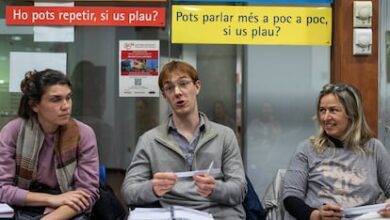
On the eve of early elections in Extremadura, Castilla y León, and Andalucía, sharp disagreements have once again flared up between Spain’s two key left-wing forces – Sumar and Podemos. Debates over who will represent voters’ interests, and in what form, have become the subject of fierce arguments and public statements.
Sumar’s leaders are betting on supporting the Unidas por Extremadura coalition, which includes Podemos and Izquierda Unida. Despite uncertainties about the participation of Sumar representatives on electoral lists, the party plans to actively campaign for this alliance. This move is explained by Sumar’s weak structure in the region and the desire to strengthen the left’s position in the battle against right-wing parties.
At the same time, discontent with Sumar’s actions is growing within Podemos. Party leaders insist on running independently in the elections, particularly in Andalucía and Castilla y León, and call on Izquierda Unida to break off cooperation with Sumar. According to Podemos representatives, the Sumar project has failed to live up to expectations and has even weakened the left-wing movement in the country.
In Andalucía, Sumar and Izquierda Unida have already joined forces under the ‘Por Andalucía’ coalition, while in Castilla y León, complex negotiations are ongoing with the participation of Verdes Equo and Izquierda Unida. A final decision on how Podemos will take part in these regions has yet to be made, adding uncertainty to the campaign.
The struggle for influence and the future of the left-wing movement
At the heart of the conflict lies a struggle for leadership and control over the left-wing electorate. Sumar aims to strengthen its position through coalitions and joint lists, emphasizing the need for a shift of power in regions dominated by the right. At the same time, Podemos insists on independence and forming new, more radical alliances, believing that this is the only way to regain voters’ trust.
The situation is further complicated by the fact that neither side is willing to compromise. This could lead to a further splintering of the left and weaken their position in the elections. As each party fights for survival and influence, a compromise seems unlikely.
In the coming weeks, it will become clear whether the left can agree on a unified strategy or if internal divisions will lead to more losses on the political stage. The outcomes of elections in Extremadura, Castilla y León, and Andalucía will reveal just how deep the rifts are and what impact they will have on the future of the leftist movement in Spain.












